The threat of US tariffs on imports from Canada and Mexico made by Donald Trump over the weekend is creating supply chain uncertainty across the North American automotive industry and carmakers are calling for attention to USMCA rules and warning of the impact on jobs, investment and consumers.
Donald Trump continues to rattle the North American automotive supply chain with the threat to impose 25% tariffs on goods imported from Canada and Mexico, testing the resiliency of carmakers and suppliers who are trying to assess the short and long-term impact on their North American supply chain strategies.
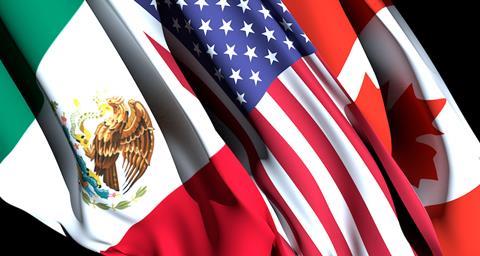
However, Mexico has reported delays of a month from the February 4 date initially announced over the weekend following a call with the White House on Monday (February 3). Further announcements are expected on the tariff start date with Canada.
According to a White House fact sheet the tariffs are being implemented because of the “extraordinary threat posed by illegal aliens and drugs, including deadly fentanyl, [which] constitutes a national emergency under the International Emergency Economic Powers Act”, and will remain in place “until the crisis is alleviated”.
They will not be imposed on goods already in transit as of 12.01, February 1.
The impact on the car industry indicates that if the proposed tariffs are imposed they will increase the average price of a vehicle in the US by $3,000, according to analysts. Passenger vehicles, light trucks and automotive parts account for the biggest import category from Mexico into the US and were worth $92.9 billion in 2023.
The shake-up in trade is almost certain to change the current makeup of the US-Mexico-Canada trade agreement (USMCA), which replaced Nafta under the last Trump government and which is due for review in July 2026.
At the same time, Trump has imposed 10% tariffs on imports from China and said the US will definitely impose trade tariffs on the European Union, but he said a deal could be worked out with the UK.
The threat of tariffs within North America is stoking a trade war. In Canada, Justin Trudeau has vowed retaliatory 25% tariffs on $30 billion’s worth of commodities, beginning on February 4. Trump’s tariff on energy resources from Canada is set at a lower 10%.
Mexico’s Claudia Sheinbaum indicated retaliatory measures but has not so far specified the targeted goods and the suspension of the proposed 25% tariff for a month indicates the quickly shifting terms of the trade debacle. On social media platform X she posted: “I’ve instructed my economy minister to implement the plan B we’ve been working on, which includes tariff and non-tariff measures in defense of Mexico’s interests.”
Vehicle imports
Last year the US imported 3.6m light vehicles from Canada and Mexico, according to analyst firm S&P Global Mobility, 70% of the 5.3m light vehicles built in those neighbouring countries and equal to 22% of all vehicles sold in the US. Mexico is current the biggest exporter of US light vehicle imports and its top three carmakers – GM, Nissan and Stellantis – export 80% of what they make in Mexico to the US. Ford also makes just under 15% of what it sells in the US in Mexico.
According to JD Power’s senior director and country manager for Mexico, Gerardo Gómez Gálvez, who was speaking at last year’s Automotive Logistics and Supply Chain (ALSC) Mexico conference, the US is producing 10.5m vehicles a year but selling 16m.
Governor Matt Blunt, president of the American Automotive Policy Council, which represents Ford, GM and Stellantis, said in an article published in Politico Pro ahead of the tariff announcement at the weekend, that vehicles and parts that meet the strict USMCA rules of origin should be exempt from the tariffs.
“If these tariffs are imposed, all vehicles and parts that comply with current USMCA trade agreement rules should be exempt, as they meet the strict standards originally negotiated by President Trump to support jobs and investment in the United States,” he said.
The AAPC said that Ford, General Motors and Stellantis continued their enduring commitment to the US auto industry by making massive investments to meet Trump’s USMCA requirements – enhancing American Automakers’ global competitiveness, while boosting US economic security.
“AAPC looks forward to working closely with the Trump Administration, Congress and other US auto industry stakeholders to ensure that any new tariffs imposed will not hinder the continued growth and global competitiveness of American Automakers, as well as our nation’s auto industry as a whole,” said the council in a statement.
Jennifer Safavian, president and CEO of Autos Drive America, which also represents the interests of 12 major carmakers based in the US, said that because the North American auto industry is highly integrated, tariffs on its trade would be detrimental to jobs, investment and consumers.
“These tariffs undermine the USMCA, a landmark trade agreement negotiated by President Trump that led to unprecedented growth and prosperity for the United States,” she said in a statement, urging all parties to reach a swift resolution to provide clarity and stability for the entire US auto industry. “US automakers would be better served by policies that reduce barriers for manufacturers, ease regulations that hinder production, and create greater export opportunities – policies that we look forward to working with President Trump to enact.”
A spokesperson for Nissan added that the company was pleased that the imposition of tariffs will not go into effect immediately, “allowing time for all parties to reach an agreement that provides stability for the entire auto industry”.
S&P Global Mobility indicates that in 2024, about 27% of Nissan sales in the US are sourced from Mexico, with 23% of Stellantis sales also sourced there, while GM sourced 22% from south of the border and Ford just under 15%. The analyst also said that Volkswagen is the most exposed to the impact of tariffs imposed by the US, with over 43% of its US sales sourced from Mexico.
Investments in vehicle production and logistics are based on this cross-border trade in North America.
Parts suppliers
There is also a high volume of trade in parts moving across the borders in North America and the imposition of 25% tariffs in the region could affect suppliers within weeks if they go ahead. Francisco González Díaz, executive president at Industria Nacional de Autopartes, told Automotive Logistics delegates at ALSC Mexico 2024 that Mexico makes up 43% of the automotive parts that the US buys across the globe, with the second biggest supplier, Canada, providing 11% of its automotive parts.
According to the US Department of Commerce, during the first nine months of 2024, Mexican automotive exports were worth $137 billion, while imports to Mexico from the US were worth $33m.
GM Mexico, currently Mexico’s leading carmaker by production volume, has spent the last decade or more locating suppliers closer to its manufacturing plants and the nearshoring strategy succeeded in developing a strong supply base in Mexico, reducing the risk and the complexity of logistics. Any impact on the volume of vehicles it makes in Mexico for US export will resonate across the supply chain undermining that risk management strategy.
High-volume products built in Canada or Mexico are significantly exposed where there is little opportunity to alternatively source from within the US. Cutting export production will hit the supply base as smaller producers will not be able to absorb the impact without support from customers.
That includes for the growth in electric vehicle making and the supply of batteries and raw materials. Last year GM announced a two-phase Canadian investment in battery materials producer NMG to develop what is projected to be the first fully integrated anode material project in North America. That investment includes advancing NMG’s operations at Matawinie mine, located 120 km north of Montréal in Canada and production at the Bécancour battery production plant, located between Montréal and Quebec City.
“When it comes to ensuring the US remains the leader in the future of mobility, one major issue remains: the tight supply of critical minerals,” said Jeff Morrison, senior vice-president and chief procurement and supply chain officer at GM in a recent statement. “In response to that issue, GM has made a series of investments to secure access to North American-based raw materials required to produce EV batteries, while also stepping up the pace of recycling.”
Morrison said that strategy has resulted in a more resilient supply chain for materials such as lithium and cathode active materials and for battery cells and magnets.
The Motor and Equipment Manufacturers Association (Mema), said it was opposed to a 25% tariff on goods from Mexico and Canada “which will place additional pressure on the supplier industry and impede the ability of supplier companies to grow, invest, and operate their businesses”.
The association said the tariffs would have severe consequences for the US vehicle supplier industry, jeopardising US jobs, increasing costs for consumers and “undermining the highly integrated North American supply chain that is critical to US competitiveness”.
Jay Timmons, president and CEO of the National Association of Manufacturers, added his voice to the concerns and said the 25% tariff on Canada and Mexico “threatens to upend the very supply chains that have made US manufacturing more competitive globally”. He said the effects will be severe, particularly for small and medium-sized manufacturers “that lack the flexibility and capital to rapidly find alternative suppliers or absorb skyrocketing energy costs”.
Impact on cross border logistics
With regard to the high-volume trade in automotive parts cross-border, the immediate impact of the tariffs is not likely to be disrupted, according to Mike Short, president of global forwarding at logistics provider, CH Robinson.
“Even with the new tariffs, the industry likely won’t see immediate volume shifts from the impacted countries,” he told Automotive Logistics. “Freight still needs to move, production lines still need to run and consumers still expect full shelves. Companies can’t simply flip a switch and move operations.”
Short said the automotive industry accounted for a large amount of Mexico-US cross-border freight but altering production lines took years of planning, though he said shippers were likely to be cautious about new orders in the first few days after the tariffs are implemented to gauge if they are temporary or long term.
Short said that CH Robinson is taking several measures to assist shippers, focusing most immediately on compliance and cost savings. He said shippers need to firstly consider actions to stay compliant, such as potentially increasing their customs bond. They also need to find compensating cost savings in other parts of the supply chain.
“We’re reminding shippers that costs can increase at various points in the supply chain, from sourcing to final mile, so there are also opportunities for cost conservation across the different areas of a life of a shipment,” said Short.
In an advisory that CH Robinson issued to customers it said duty drawback will not be allowed on goods subject to the tariffs, nor will they qualify for duty-free treatment under the de minimis threshold rule.
Topics
- Battery Supply Chain
- Canada
- Compliance & Safety
- Cross-Border Logistics
- Electric Vehicles
- EV & Battery Production
- Ford
- GM
- Inbound Logistics
- Inventory & Demand Forecasting
- Logistics Management
- Logistics service provider
- Mexico
- Nearshoring
- News
- News and Features
- Nissan
- North America
- OEMs
- Policy and regulation
- Regional Sourcing & Manufacturing
- Risk Management
- Stellantis
- Suppliers
- Supply Chain Planning
- Trade & Customs
- United States Of America




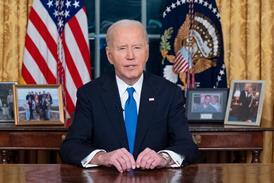





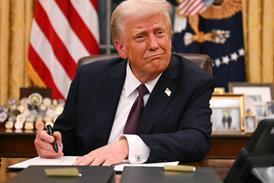








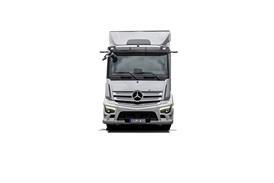
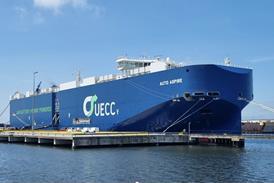
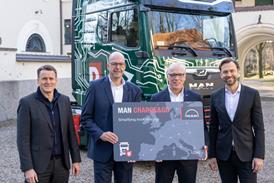





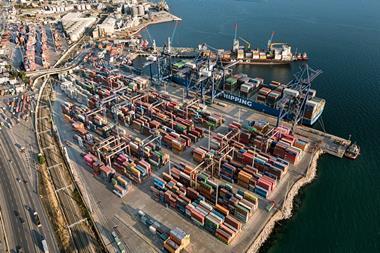

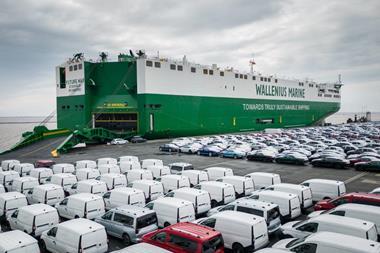
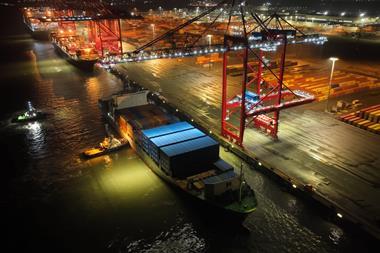

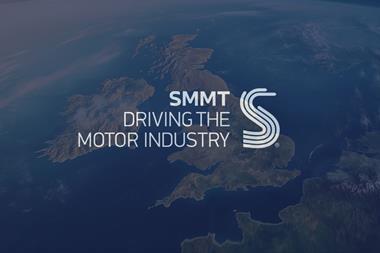
No comments yet